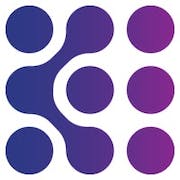Communication is the lifeblood of business, and as companies continue to adopt distributed team models, having a reliable telephony solution has become increasingly critical. For businesses of all sizes, telephony software has revolutionized the way we communicate, enabling seamless collaboration and communication between the workforce, customers, and partners in different locations. However, with so many options available, it can be tough to know which telephony software is right for you. In this Telephony Software Buyers Guide, we aim to help you make the right decision by providing an in-depth analysis of some of the best telephony software solutions on the market today. By the end of this guide, you'll be equipped with the knowledge you need to select a solution that enhances your communication capabilities, drives productivity, and lets your business thrive.
What is Telephony Software
Telephony softwarerefers to computer programs that facilitate communication over the telephone or other telecommunications devices. This type of software often integrates with voice over IP (VoIP) technology and may provide features such as call routing, voicemail, and call recording. Some common use cases for telephony software include: 1. Call center operations: Telephony software is often used in call centers to manage inbound and outbound calls, track call metrics, and provide customer support. 2. Business communication: Businesses use telephony software to facilitate internal communication between employees and external communication with clients or customers. 3. Teleconferencing: Telephony software also enables remote collaboration and teleconferencing, allowing people in different locations to communicate in real-time. Several types of companies use telephony software, including those in the healthcare, finance, and customer service industries. Healthcare organizations use telephony software to manage patient calls and appointments, while finance companies use the software to monitor trading desks and communicate with customers. Customer service teams rely on telephony software to provide prompt and effective support to clients. In summary, telephony software facilitates communication on telecommunications devices and VoIP technology. It is commonly used in call centers, business communication, and teleconferencing. Companies in various industries, including healthcare, finance, and customer service, utilize telephony software to improve communication and support.
Benefits of Telephony Software
Telephony software plays a crucial role in modern businesses. It refers to a collection of tools and technologies designed to enhance communication, both within and outside a business. Here are some of the key benefits of telephony software: - Cost Savings: Telephony software enables businesses to communicate more efficiently and effectively, thus reducing the costs associated with traditional methods such as phone calls and physical meetings. This can lead to significant cost savings for business owners in the long run. - Increased Productivity: With telephony software, businesses can streamline communication, automate routine tasks, and reduce the time spent on administrative tasks. This, in turn, leads to higher productivity levels across the organization. - Improved Customer Service: Telephony software provides businesses with the tools necessary to enhance customer service, including features such as call routing, voicemail, and auto-attendant. By providing customers with timely and efficient service, businesses can improve customer satisfaction levels and build a positive reputation. - Enhanced Collaboration: Telephony software allows for easy collaboration and communication between team members, both within and outside the business. This improves teamwork, leads to better decision-making, and ultimately, positively impacts overall business performance. - Scalability: Telephony software is highly scalable, which means it is easy to upgrade or downsize depending on the needs of the business. This makes it a flexible solution for businesses of varying sizes. In summary, telephony software is an essential tool for businesses looking to streamline communication, enhance collaboration, save costs, and improve customer service. With these benefits, telephony software should be an important consideration for any business looking to boost productivity and efficiency.
Features of Telephony Software
Telephony software is an essential tool for modern businesses to ensure efficient communication with clients, partners, and other teams within the company. Here are 10 common features of telephony software that businesses should consider when adopting this technology: 1. Call routing: Telephony software offers advanced call routing features that automatically direct incoming calls to the appropriate department, individual, or voicemail, based on predetermined rules and criteria. 2. Conference calls: With telephony software, it's easy to set up conference calls, allowing multiple people to participate in a single conversation, regardless of their physical location. 3. Voicemail: Telephony software allows users to record a message when a call is not answered or is sent to voicemail. These messages can then be retrieved and listened to by the recipient at a later time. 4. Call forwarding: Users can also forward calls to another phone number or extension, ensuring they never miss an important call. 5. Call recording: Telephony software can facilitate call recording, allowing businesses to record calls for quality assurance, training, or legal purposes. 6. Interactive Voice Response (IVR): IVR enables callers to interact with an automated system to obtain information or complete specific tasks without speaking with a live agent. 7. Analytics and reporting: Telephony software can provide detailed analytics and reporting on call volumes, call duration, wait times, and other key metrics. 8. Caller ID: Telephony software displays the incoming caller's phone number, enabling businesses to screen calls and prioritize important calls. 9. Mobile access: Many telephony software options offer mobile access, which means employees can make and receive calls using their mobile device. 10. Integration with other software: Telephony software can integrate with other business tools and software to enhance productivity and streamline communication. In conclusion, adopting telephony software can significantly enhance a business's communication capabilities, making it easier to collaborate with team members and connect with clients and partners. By offering advanced features such as call routing, conference calls, voicemail, call recording, and more, businesses can streamline their communication processes and improve overall efficiency.
Considerations of Telephony Software
Telephony software has become a crucial tool for businesses today, helping them to stay connected with their customers and clients. But with a wide range of options available, choosing the right telephony software can be quite challenging. To help you make an informed decision, we have compiled a list of factors that businesses should consider when purchasing telephony software. 1. Integration with other business applications One of the most important factors to consider when purchasing telephony software is whether it integrates with other business applications that you already use. For instance, if your business uses a CRM system, you'll want to choose telephony software that can integrate with it seamlessly. This will enable your sales team to have all the information they need about a customer at their fingertips, including call history, without having to switch between different applications. 2. Call management features Another important factor to consider when choosing telephony software is the call management features it offers. For example, you'll want to consider the software's call routing capabilities, voicemail options, call queuing features, and conference calling capabilities. Be sure to choose telephony software that offers the features you need to run your business effectively. 3. Ease of use Telephony software can be complex, and it's important to choose software that's easy for your staff to use. The ideal software should have an intuitive interface and offer user-friendly features like drag-and-drop call routing, one-click conferencing, and detailed call logs. 4. Scalability The needs of your business will change over time, and it's important to choose telephony software that can grow and adapt with your business. Look for software that offers flexible pricing plans and can easily accommodate changes in the number of users, locations, or call volume. 5. Reliability and security When choosing telephony software, you'll want to consider the reliability and security of the solution. Choose software that guarantees high uptime, has multiple redundancies in place, and offers secure call routing and storage options. In conclusion, there are many factors to consider when purchasing telephony software for your business, including integration with other business applications, call management features, ease of use, scalability, reliability, and security. By weighing these factors carefully, you can choose the telephony software that best meets the needs of your business and helps you stay connected with your customers and clients.
Software Trends for Telephony Software
The telephony software industry is evolving at a rapid pace with innovations that have transformed communication and collaboration in the workplace. As we look ahead to the future, various trends are expected to shape the industry, offering businesses new opportunities to streamline their communication processes. One significant trend is the rise of cloud-based telephony systems, which offer increased flexibility and accessibility for remote workforces. Another trend is the use of artificial intelligence and machine learning in telephony systems, making tasks such as call routing and transcription more efficient. Additionally, there is a growing demand for unified communication solutions that integrate multiple communication channels, such as instant messaging, video conferencing, and phone calls, into a single platform. These trends are set to transform the telephony software industry, and businesses that embrace them will reap the benefits of streamlined and efficient communication processes.





